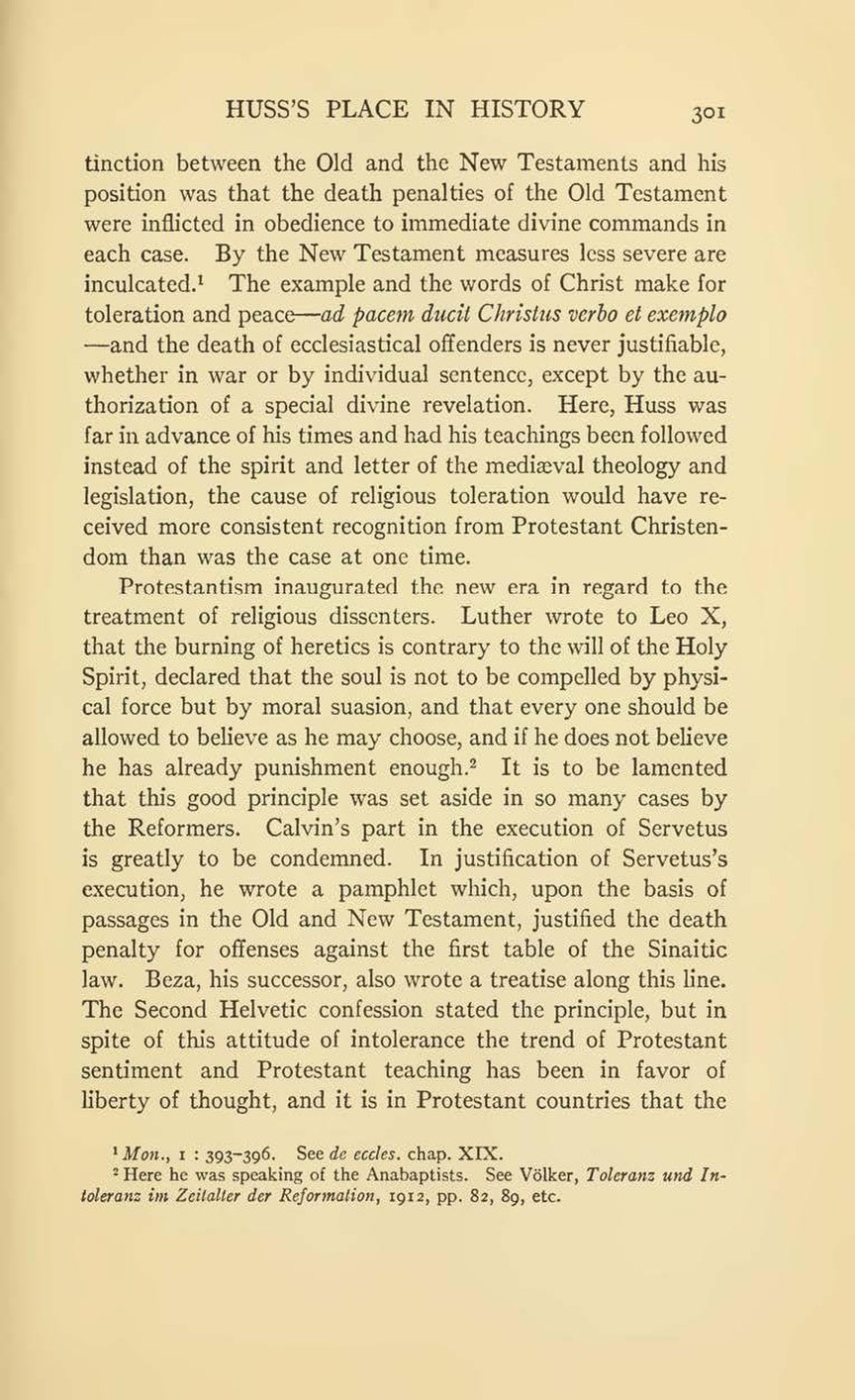tinction between the Old and the New Testaments and his position was that the death penalties of the Old Testament were inflicted in obedience to immediate divine commands in each case. By the New Testament measures less severe are inculcated.[1] The example and the words of Christ make for toleration and peace—ad pacem ducit Christus verbo et exemplo—and the death of ecclesiastical offenders is never justifiable, whether in war or by individual sentence, except by the authorization of a special divine revelation. Here, Huss was far in advance of his times and had his teachings been followed instead of the spirit and letter of the mediæval theology and legislation, the cause of religious toleration would have received more consistent recognition from Protestant Christendom than was the case at one time.
Protestantism inaugurated the new era in regard to the treatment of religious dissenters. Luther wrote to Leo X, that the burning of heretics is contrary to the will of the Holy Spirit, declared that the soul is not to be compelled by physical force but by moral suasion, and that every one should be allowed to believe as he may choose, and if he does not believe he has already punishment enough.[2] It is to be lamented that this good principle was set aside in so many cases by the Reformers. Calvin’s part in the execution of Servetus is greatly to be condemned. In justification of Servetus’s execution, he wrote a pamphlet which, upon the basis of passages in the Old and New Testament, justified the death penalty for offenses against the first table of the Sinaitic law. Beza, his successor, also wrote a treatise along this line. The Second Helvetic confession stated the principle, but in spite of this attitude of intolerance the trend of Protestant sentiment and Protestant teaching has been in favor of liberty of thought, and it is in Protestant countries that the
